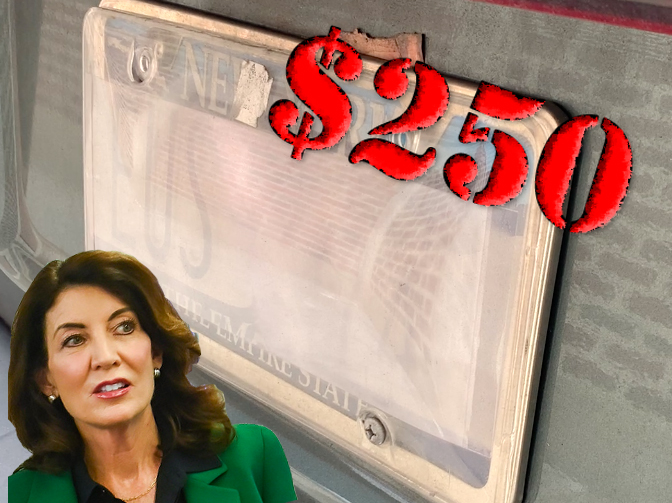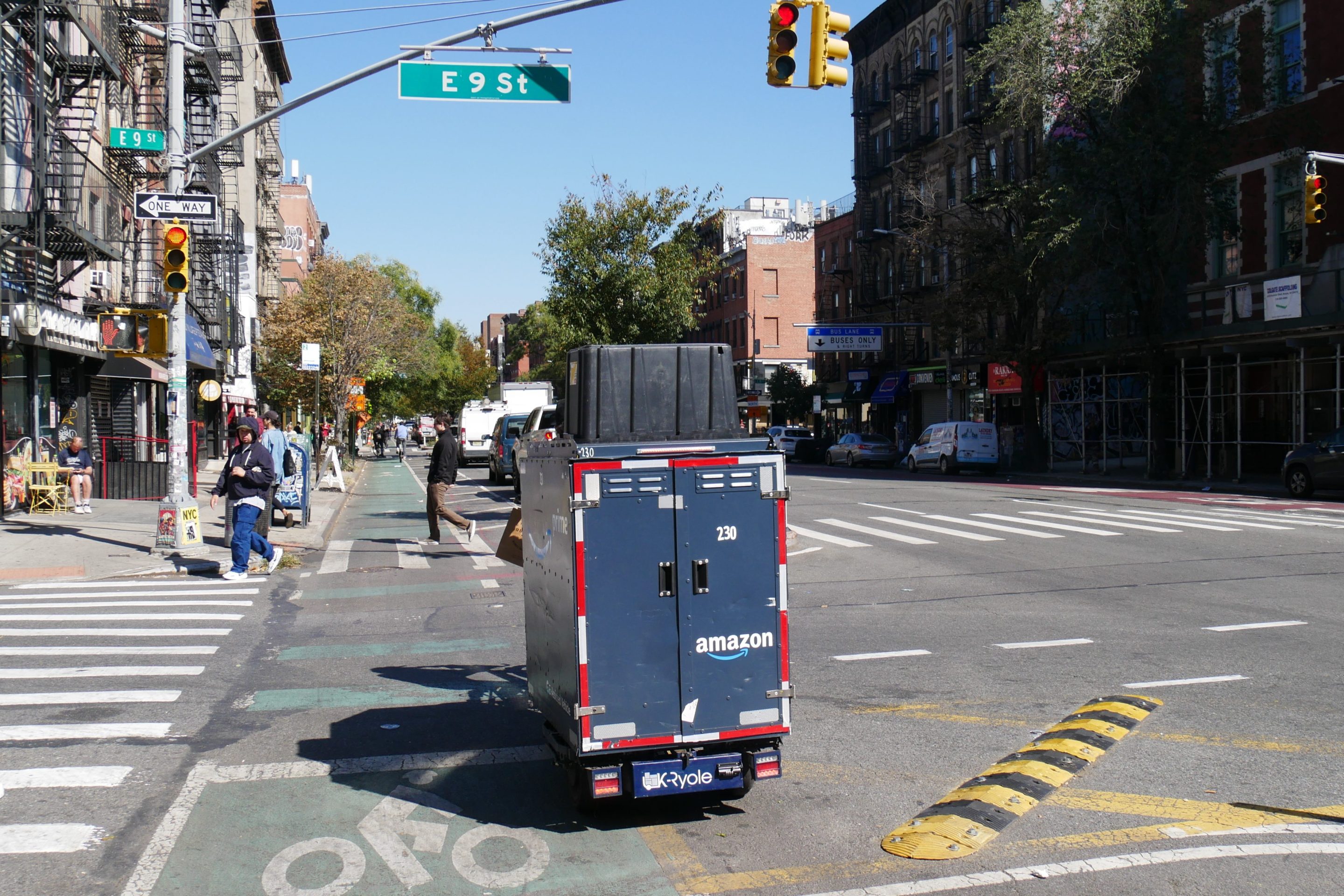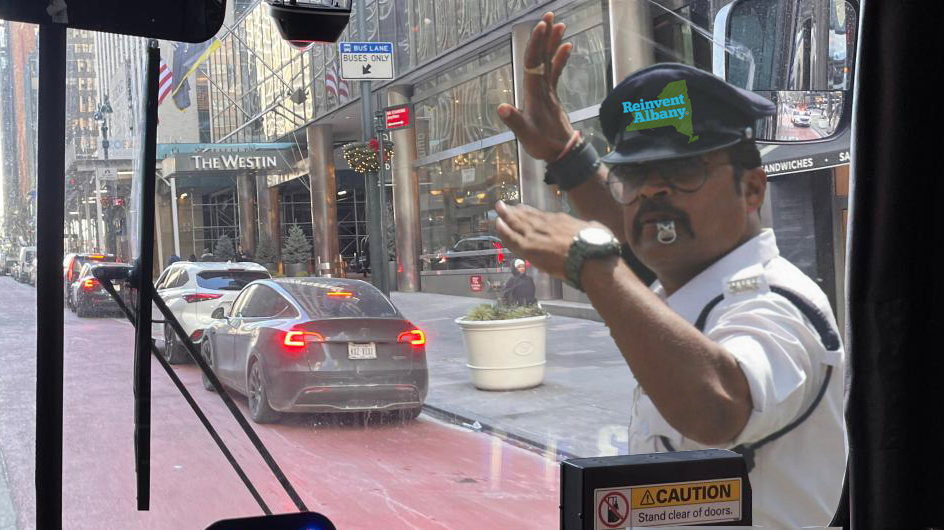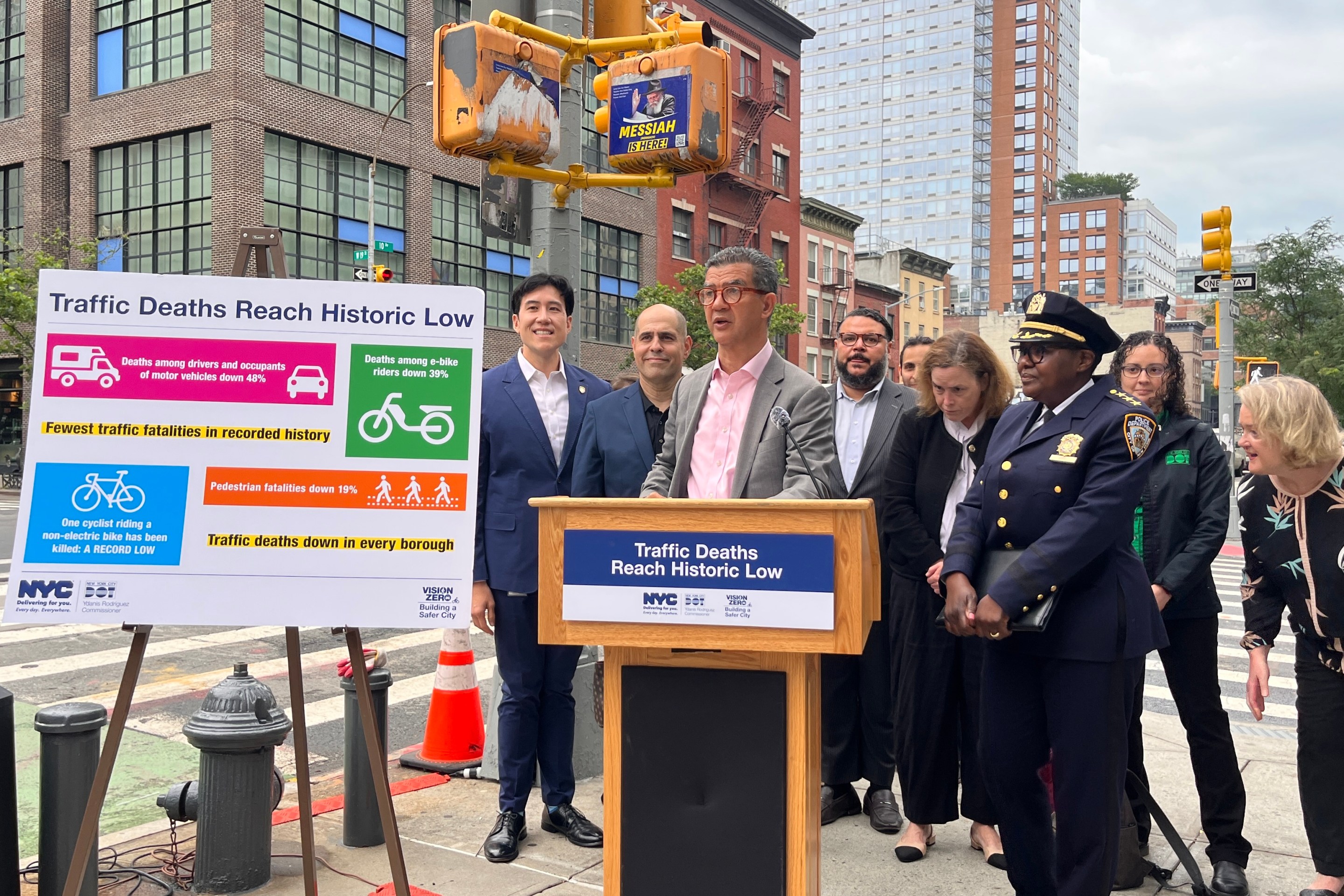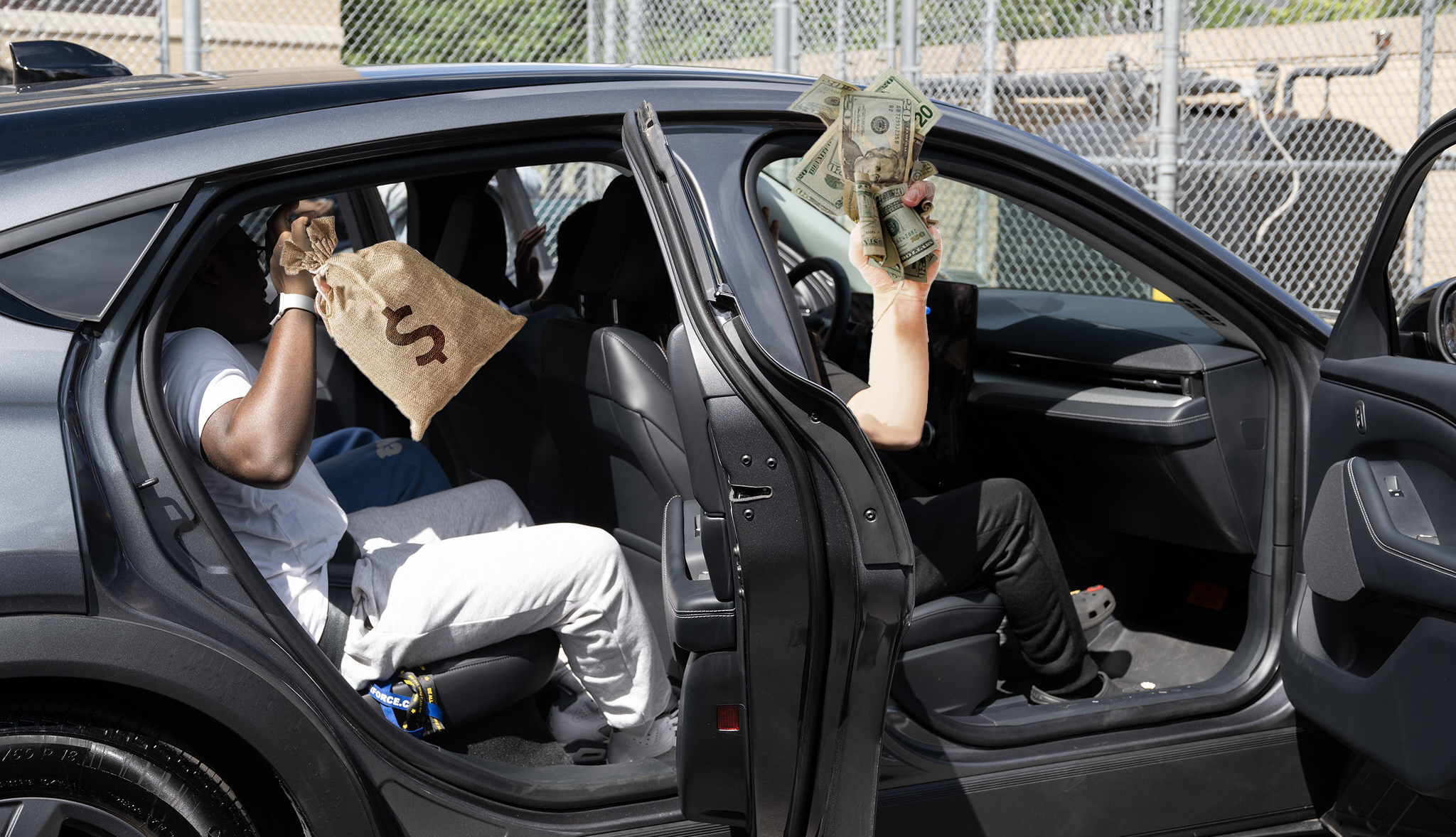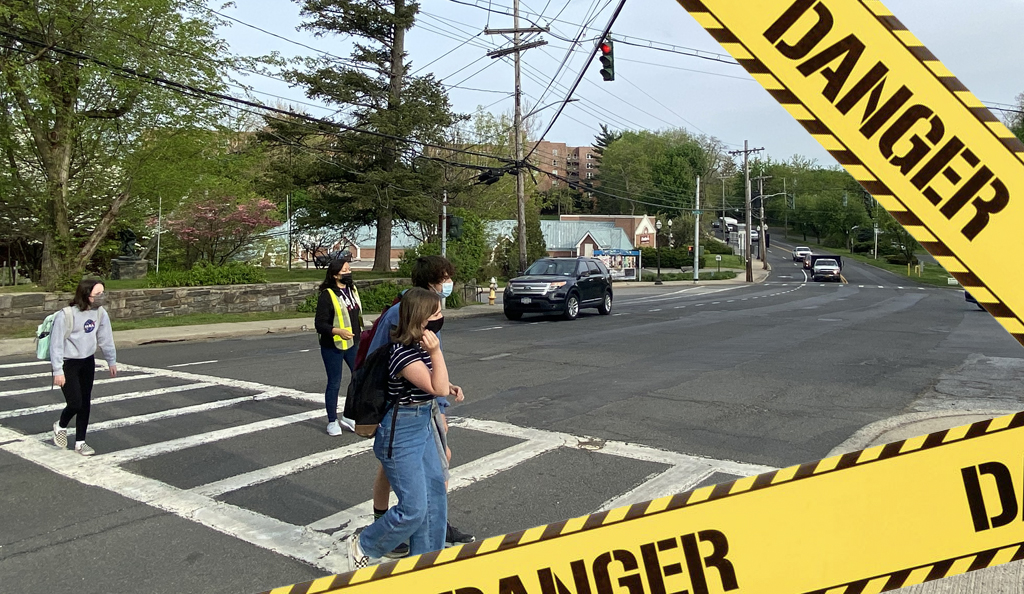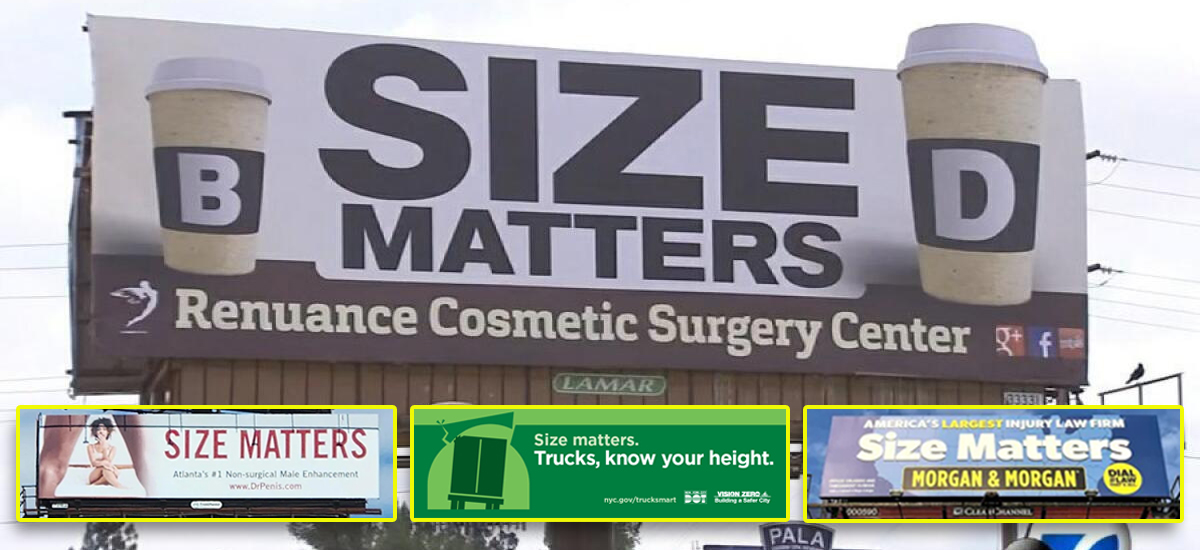She's blowing their covers.
Gov. Hochul will announce today that she will raise the fine for covering a license plate — and give cops the power to remove the obstruction so that the plates can be properly read by toll and speed cameras, Streetsblog has learned. The announcement will be paired with an allocation to start a pilot program to add speed cameras to MTA bridges.
In her budget briefing in Albany, Hochul will announce the new $250 fine — up from the current $65 — for the offense. The higher fines represent the first action by state or local government since Streetsblog began a three-month social media campaign to expose the thousands, if not tens of thousands, of New York drivers who cover, obscure, deface, bend or even foliate their license plates.
Drivers who cover or otherwise deface their license plates cost the city and state more than $100 million in lost summons and penalty money every year, according to the city Department of Transportation, who oversees the city's speed camera program, and the MTA, which operates nine area toll bridges.
"Everyone should play by the same rules of the road," Hochul told Streetsblog through a spokesman. "Ensuring drivers pay tolls on our bridges, highways, and tunnels is essential for safety and fairness. This legislation will allow the Department of Motor Vehicles and law enforcement to go after those who purposely obstruct their plates in order to avoid paying tolls, and confiscate materials that prevent collection.”
The new fine, plus authorization for cops to remove obstructions over or material affixed to the plates (like this), applies to covered or folded plates, and will go into effect one year after passage. The governor is not taking specific action at this time against people who scratch off some of the paint on their plates, as sometimes it is difficult to know if the missing paint is the result of normal wear and tear or deliberate action, the governor's office added.
Sometimes, of course, it is very easy to tell:
Before we kick off the week, how about some awesome CRIMINAL MISCHIEF against a cop from @NYPD5Pct who should be enforcing the law not breaking it. Well, now he's safe because I repainted his plate for him. You're welcome, @nypdpc Sewell — now there's 1 less cop to discipline. pic.twitter.com/5sZ0D8meB0
— Gersh Kuntzman (@GershKuntzman) January 9, 2023
It is not as if the NYPD and its traffic agents don't write any tickets against drivers who cover their plates; in 2022, the NYPD said it issued 18,952 summonses and 5,943 moving violations to people who covered or obstructed their plates. At $65 a pop, some experts said the tickets were too low to create the proper deterrent.
And officers do not remove the actual coverings, as this reporter did repeatedly.
Let's close out the day with some serious CRIMINAL MISCHIEF on Schermerhorn St. in @NYPD84Pct, where today we found a @NYSCourtsNews officer who stopped getting tickets a year ago — perhaps when he installed this illegal plate cover? Well, I helped him out, big time. pic.twitter.com/MzV8WggwKC
— Gersh Kuntzman (@GershKuntzman) January 6, 2023
Still, advocates — even those who supported the "criminal mischief" campaign — were a bit dubious about the higher fines, given that police officers are among the biggest offenders, as Streetsblog reported.
"It's certainly a credit to the activists — and Streetsblog editors with Sharpies — who have been bringing so much attention to this issue that it has now been elevated to the level of governor's office, but fines are a bit toothless if some of the biggest offenders are the same people tasked with doling them out," said Doug Gordon, a co-host of the "War on Cars" podcast. "Ending the problem of covered license plates means directly confronting the fact that the NYPD won't police its own. A two-tiered system, where police officers and other city and state employees openly flout laws that net regular citizens ever-escalating fines, is not justice."
Gordon was a lot more effusive about Hochul's other promise — to fund a $20-million demonstration project to deploy speed cameras on MTA bridges, tunnels and approach/exit ramps.
"Speed cameras are often framed as a way to protect pedestrians and cyclists from reckless drivers, but they also protect law-abiding drivers and their passengers from reckless drivers, so it makes a lot of sense to put them on TBTA bridges," he said. "It's great that the governor is using her power to protect people from traffic violence no matter how they get around."
A recent Streetsblog analysis revealed that a sizable portion of last year's high fatality count was due to an increase in highway deaths, some of which might have been prevented through the deterrent of speed cameras, argued Stephen Graham, who is on the Urban Planning faculty at NYU Wagner Graduate School of Public Service.
The $20-million program will come from the MTA's budget, not from the general fund, according to the governor's office.
